On the afternoon of February 14, the National Assembly discussed in groups the supplementary project on socio-economic development in 2025 with a growth target of 8% or more; Investment policy for the Lao Cai - Hanoi - Hai Phong railway construction project; Draft resolution of the National Assembly on piloting a number of specific and special mechanisms and policies to develop the urban railway network system in Hanoi and Ho Chi Minh City; Special mechanisms and policies for investment in the construction of the Ninh Thuan nuclear power project.
Deputy Head of the Delegation in charge of the National Assembly Delegation of Quang Tri Province Hoang Duc Thang chaired the group discussion session - Photo: TS
At the group discussion session, delegate Hoang Duc Thang, Deputy Head of the Specialized Delegation in charge of the Quang Tri Provincial National Assembly Delegation, was assigned as the Group Leader. Based on the Government 's submission and the examination records, delegate Hoang Duc Thang requested the National Assembly Deputies in the group to study and discuss related contents.
Participating in the discussion, delegate Ha Sy Dong, member of the National Assembly's Finance and Budget Committee and Acting Chairman of the Quang Tri Provincial People's Committee, stated: Excluding the period of fluctuations caused by COVID-19, the last time Vietnam achieved a growth rate of over 8% was in 1997. Since then, it has never achieved a high and prolonged growth rate like the period of 1992-1997.
In 2022, the growth rate was above 8% due to the economic recovery from the pandemic, but the growth rate decreased to 5% the following year. With this reality, the target of 8% growth in 2025 and double digits from 2026 is a huge challenge.
The delegate added that the global economic situation also poses many challenges. Our country has an important geographical and political position, but 2025 is difficult to predict, especially the risk of a "trade war". The government has prepared a response scenario, but if Vietnam is taxed by the US, growth will inevitably decline.
Even without tariffs, Vietnam would no longer benefit from the “trade war” as before, as all parties have experience in diversifying supply chains. The project is expected to add VND84.3 trillion to public investment, with financial resources coming from increased revenue and budget savings. However, the Government also submitted a plan to increase the budget deficit to 4-4.5% of GDP and accepted that public debt, government debt, and foreign debt could reach or exceed the warning threshold of 5% of GDP.
According to the delegate, if the budget can be saved, it is good, but if revenue must be increased or debt must be taken into consideration, and he gave an example: Problems such as delayed tax refunds on wood, rubber, and cassava have exhausted export enterprises. Export services, although entitled to 0% tax by law, are actually subject to 10% because the tax authority believes that it is not possible to determine whether they are exports or not.
Regarding public debt, delegate Ha Sy Dong pointed out that borrowing measures could push up interest rates, making it more difficult for private enterprises to borrow from banks. Currently, Vietnamese enterprises have to pay higher interest rates than those in other countries. The government has made great efforts to reduce interest rates but has not succeeded. If interest rates continue to increase, domestic enterprises will suffer even more.
From the analysis, delegate Ha Sy Dong proposed the growth target of 8% as follows: Ideally, when Vietnam is not involved in a "trade war", it can save on spending to increase public investment without having to increase revenue or borrow; because if a trade war occurs, growth will be negatively affected, at that time it is necessary to consider measures to increase revenue, increase deficit and public debt.
In addition, delegates suggested that it is necessary to pay attention to institutional reform, especially judicial reform to protect property rights and contract rights; not criminalize civil-economic relations; speed up the execution of judgments in commercial business cases, and increase the rate of successful execution of judgments regarding money.
Regarding public investment, the Government needs to carefully consider accelerating national target programs such as the national target program on culture. To achieve sustainable growth, it is recommended to prioritize investment in transport infrastructure, technology infrastructure, and digital transformation in the Government.
National Assembly Delegate Ha Sy Dong speaks at the group discussion session - Photo: TS
Regarding the draft of specific mechanisms and policies for investment in the construction of the Ninh Thuan Nuclear Power Project, delegate Ha Sy Dong said: In the context of sharply increasing demand for electricity, while traditional power sources such as coal and hydropower are gradually revealing many limitations, the development of nuclear power has become an inevitable requirement.
However, to successfully implement this project, we need a specific system of mechanisms and policies to ensure feasibility, efficiency and sustainability. In fact, many countries such as France, Japan, South Korea and China have had specific policies in developing nuclear power and have achieved success.
Therefore, Vietnam also needs to build a separate policy framework, suitable to actual conditions, to effectively implement this project. In which, the financial support policy, allowing EVN and Petrovietnam to retain after-tax profits to reinvest in the project is reasonable, helping to ensure counterpart capital and reduce debt pressure.
However, in addition to the positive points, there are still some limitations that need to be carefully considered for improvement: (i) the mechanism of appointing contractors for turnkey packages is causing a lot of controversy. Although this is a way to speed up progress, if not strictly controlled, it can lead to transparency and quality of the project; (ii) regarding capital arrangement, although there is a specific financial mechanism, it is still necessary to control public debt risks, ensuring sustainability; there needs to be a mechanism to closely monitor the use of capital, avoiding loss and waste; (iii) there needs to be a specific policy on nuclear waste treatment...
To perfect the system of mechanisms and policies for the Ninh Thuan nuclear power project, delegate Ha Sy Dong proposed to strengthen bidding supervision, publicize the list of contractors, establish an independent supervisory council to ensure transparency; specify the policy on nuclear waste treatment, learn from the experience of countries with developed nuclear industries; strictly control investment capital, ensure proper and effective use, avoid budget loss;...
Also at the discussion session, delegate Hoang Duc Thang, Deputy Head of the Delegation in charge of the National Assembly Delegation of Quang Tri province, emphasized: The Government's proposal to adjust the growth target to 8% or more needs to be considered and evaluated through scientific and practical bases, because this is an important economic development indicator that many voters are interested in.
In addition, the upward adjustment of the economic growth target will also directly impact the consumer price index (CPI) and the state budget deficit will lead to risks in controlling inflation and public debt. In addition, the acceleration of the restructuring and streamlining of the apparatus in the first quarter of 2025 will also have impacts on the Government's macroeconomic management process, because the state apparatus system from the central to local levels will have many fluctuations in both organizational structure and human resources.
Regarding the investment in the Lao Cai - Hanoi - Hai Phong railway construction project and Ninh Thuan nuclear power plant; in the period of 2025-2030, the country is initiating and implementing many dynamic projects (North - South high-speed railway, Long Thanh International Airport) requiring a huge amount of resources in terms of both investment capital and other resources, which will pose many challenges for the Government and related ministries and branches in organizing implementation to ensure quality and progress according to the set plan.
At the end of the discussion, delegate Hoang Duc Thang highly appreciated and acknowledged the opinions of the National Assembly deputies.
Cam Nhung - Thanh Tuan - Truong Son
Source: https://baoquangtri.vn/quoc-hoi-thao-luan-tai-to-ve-tinh-hinh-kinh-te-xa-hoi-191728.htm


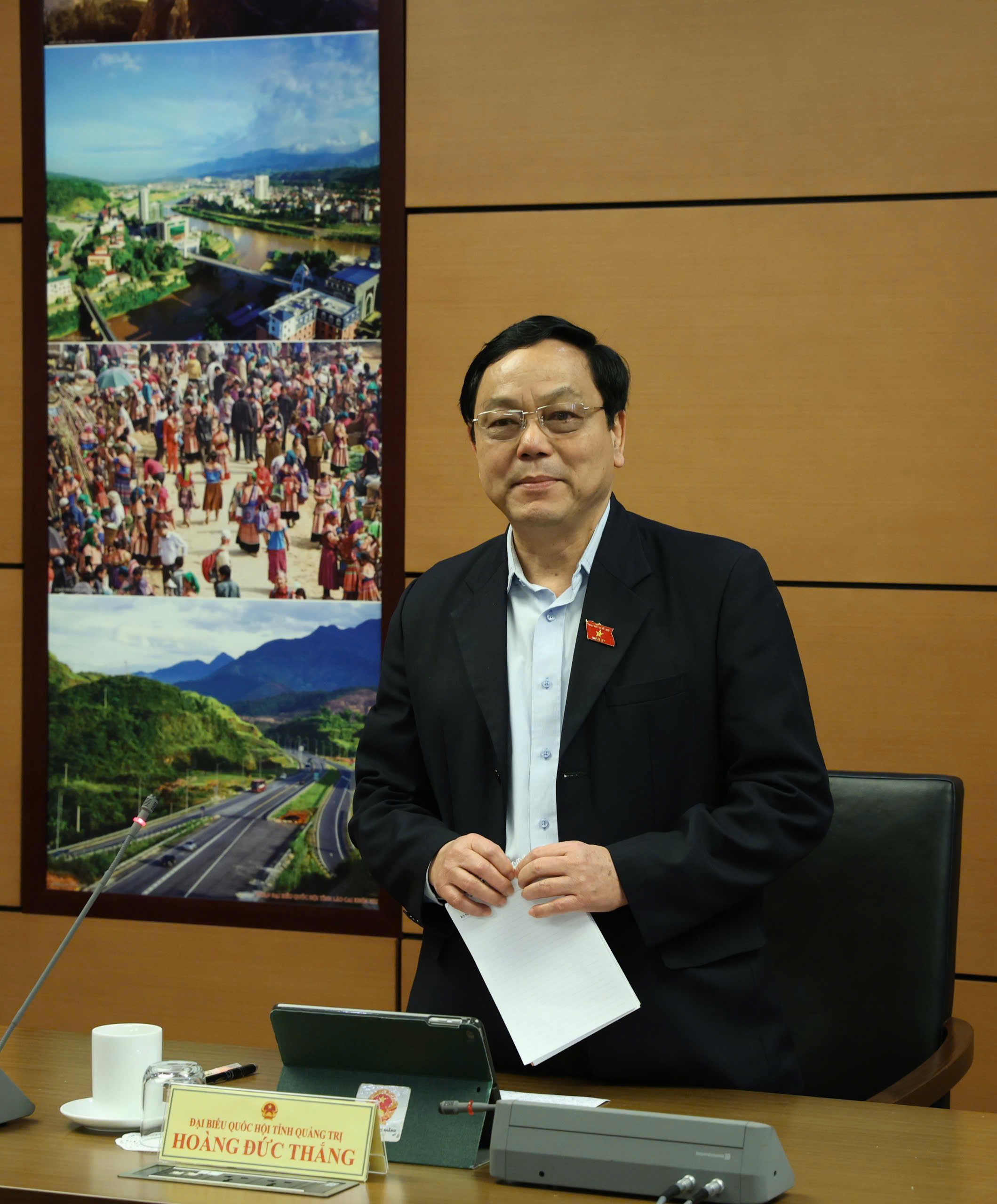
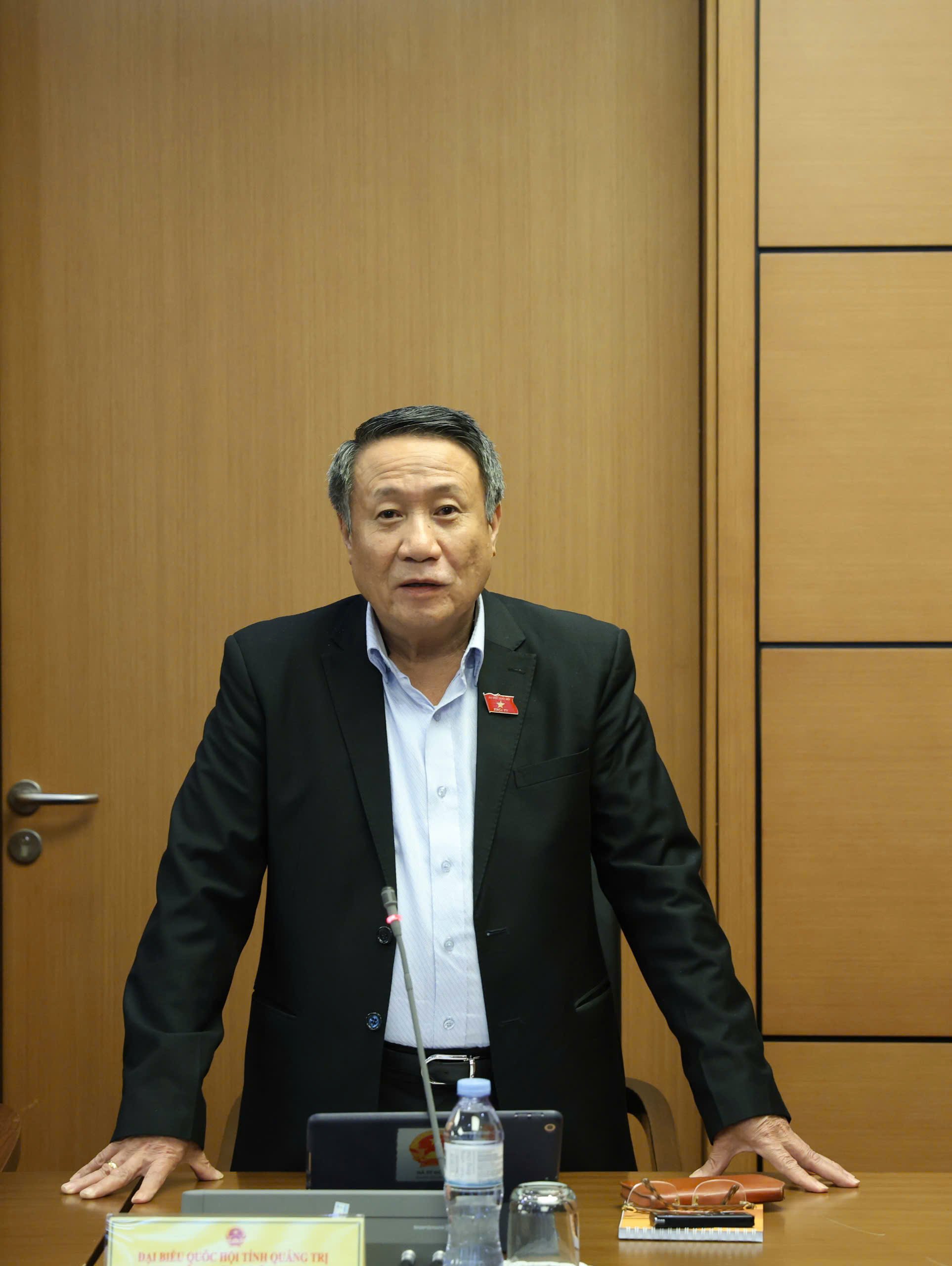




![[Photo] Nearly 3,000 students moved by stories about soldiers](https://vphoto.vietnam.vn/thumb/1200x675/vietnam/resource/IMAGE/2025/5/17/21da57c8241e42438b423eaa37215e0e)
![[Photo] Readers line up to visit the photo exhibition and receive a special publication commemorating the 135th birthday of President Ho Chi Minh at Nhan Dan Newspaper](https://vphoto.vietnam.vn/thumb/1200x675/vietnam/resource/IMAGE/2025/5/17/85b3197fc6bd43e6a9ee4db15101005b)







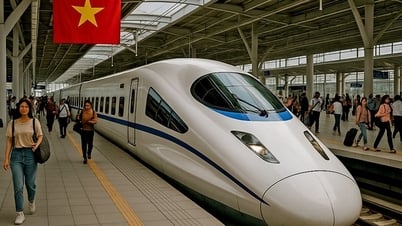


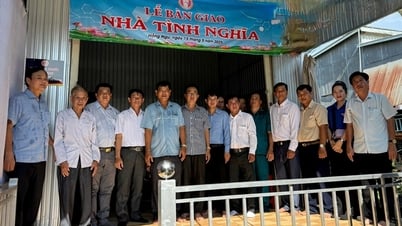

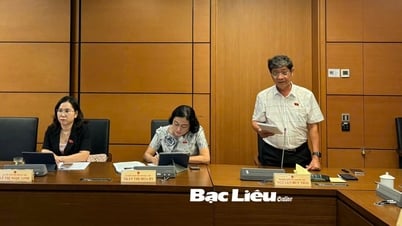
![[Infographic] Numbers about the 2025 High School Graduation Exam in Dong Thap Province](https://vphoto.vietnam.vn/thumb/402x226/vietnam/resource/IMAGE/2025/5/17/c6e481df97c94ff28d740cc2f26ebbdc)
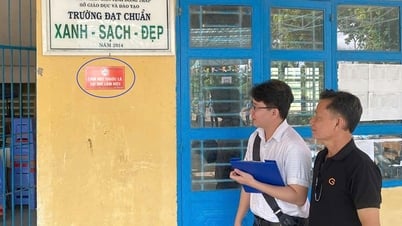









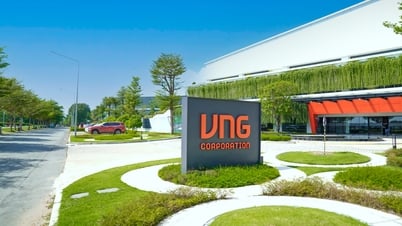
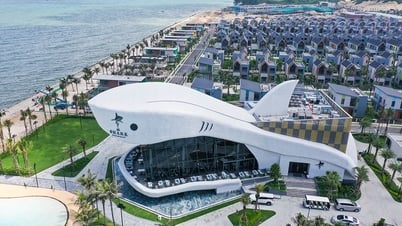

















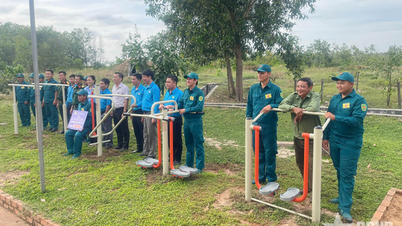


















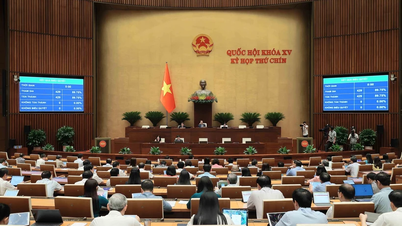













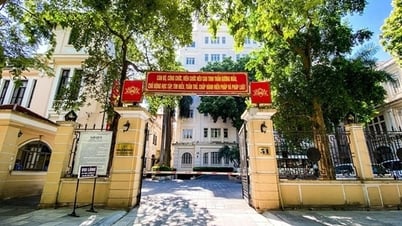






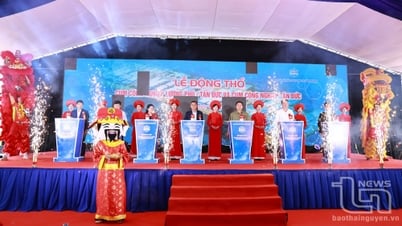










Comment (0)